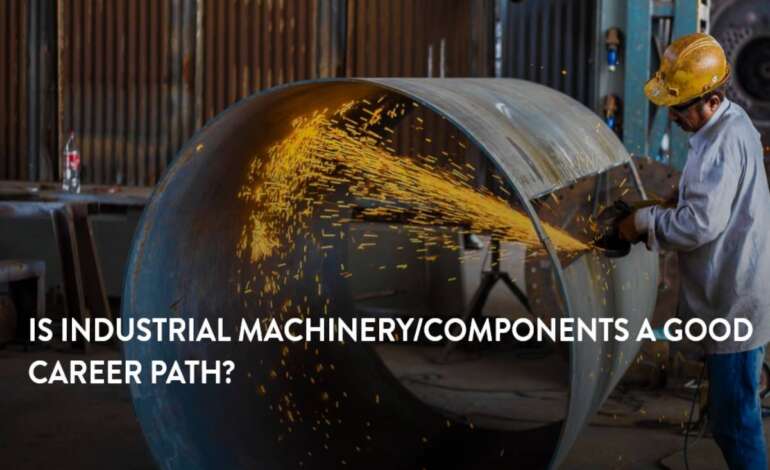
Is Industrial Machinery/Components a Good Career Path?
Is industrial machinery/components a good career path: If you’re considering a career in the industrial machinery industry, you may wonder about the job prospects, earning potential and overall job satisfaction in the field. With the advancement of technology and increasing demand for skilled workers, industrial machinery offers a promising career path for those who are passionate about engineering, mechanics and problem-solving. Understanding the training and skills requirements and benefits of working in the industry can help you determine whether it’s a viable career option for you.
In this article, we show why industrial machinery is a good career path by exploring the benefits of working in the industry, listing the necessary skills for industrial work and offering several career options with salary information.
Key Skills for Industrial Machinery Careers
- To work with industrial machinery, you typically need some of the following skills:
- Knowledge of mechanical engineering principles and practices
- Ability to read and interpret technical drawings, schematics and blueprints
- Proficiency in using various types of hand and power tools
- Familiarity with industrial control systems and automation technologies
- Knowledge of welding and fabrication techniques
- Ability to troubleshoot and diagnose equipment malfunctions
- Understanding of hydraulics, pneumatics and other fluid power systems
Jobs in Industrial Machinery
Following are some jobs to consider in industrial machinery.
1. Robotics engineer
National average salary: $107,080 per year
Primary duties: A robotics engineer designs, develops and tests robotic systems for industrial and manufacturing environments. They design the hardware and software components of robots, including the mechanical structure, electrical and electronic systems and control systems. Robotics engineers may also help integrate robots into production lines, test and troubleshoot robot performance and conduct research to improve robot capabilities.
2. Mechanical engineer
National average salary: $89,424 per year
Primary duties: A mechanical engineer in an industrial environment designs, develops and tests mechanical systems, machines and equipment used in manufacturing and production. They apply principles of mechanics, thermodynamics and materials science to design and optimize machines for efficiency, reliability and safety. Engineers also work closely with production teams to ensure that the equipment meets the required specifications and standards.
3. CNC operator
National average salary: $50,639 per year
Primary duties: A CNC operator controls the computer numerical control (CNC) machines that manufacture parts and components for industrial machinery. They read and interpret technical drawings, set-up the machines and monitor the production procedure to ensure that they manufacture parts to the required specifications. Operators also perform routine maintenance on the machines and trouble-shoot any issues that arise during production.
4. Mechanical assembler
National average salary: $44,567 per year
Primary duties: A mechanical assembler installs and assembles mechanical components and systems used in manufacturing and production. They read and interpret technical drawings, use hand and power tools to assemble the components and ensure that the finished product meets the required specifications and quality standards. Assemblers also test and troubleshoot the components and systems before they become operational.
Is Industrial Machinery/components a Good Career Path?
To determine whether industrial machinery is a good career path, consider first that industrial machinery is essential to thousands of important processes. This can mean greater job security, and, since technology is constantly evolving, the opportunity to learn and advance in your career. With a job in this sector, you can help contribute to the continuous innovation of industrial manufacturing procedures, including the reduction of carbon emissions from industrial processes and greater safety for industrial and manufacturing personnel. Many jobs also offer a competitive salary and potential benefits that can include paid time off, healthcare options and retirement plans.
Conclusion: Is Industrial Machinery/Components a Good Career Path
In conclusion, a career in industrial machinery and components can offer solid prospects and long-term stability. It plays a vital role in many key industries, ensuring consistent demand for workers. Those who pursue this path can find diverse opportunities across different roles, from technical to operational positions. The field also presents the potential for growth as technology advances, making it a dynamic industry with room for career development. Although the work can be challenging and may require specialized training, it provides opportunities for those seeking a stable, well-paying career in an essential sector of the economy.
